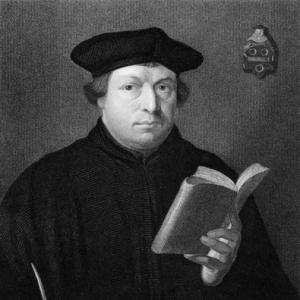David C. Steinmetz is the Kearns Distinguished Professor Emeritus of the History of Christianity at the Divinity School of Duke University in Durham, N.C.
Posts By This Author
Pope Francis and a New Vision of Catholic Reform
From the very first moment of his unexpected election as Pope Francis, Cardinal Jorge Bergoglio of Argentina has embraced a series of small departures from established tradition.
He took his papal name from a great nonconforming saint of the Middle Ages — and one that no other pope in the history of the Roman Catholic Church has taken. He then refused to stand on an elevated platform that would separate him from his “brother cardinals,” and asked the people of Rome to bless him rather than receive his blessing. He even insisted on returning to his hotel to settle his account (as though his credit were in any doubt).
Everyone who knew Bergoglio saw in him an unconventional and even unpredictable figure. He lived in Buenos Aires in a modest apartment rather than in the archbishop’s palace. He dispensed with a private limousine and took public transportation to work. He even cooked his own meals at home in his own kitchen.
Now, as pope, he has continued this pattern by ignoring long-settled traditions of what a pope should wear, where he should reside, and how he should conduct himself in public functions. Francis has chosen not wear the gold papal cross to which he is entitled, instead wearing the more simple cross he wore in Argentina. He also seems satisfied with normal men’s footwear, avoiding the elegant red loafers Pope Benedict normally wore in public.
Searching for the Real Martin Luther
DURHAM, N.C. — Protestants have traditionally celebrated Oct. 31 as the anniversary of the start of the Protestant Reformation, a movement that divided Western Christendom and gave birth to such diverse religious groups as Lutherans, Presbyterians, Anglicans, and Mennonites.
On Oct. 31, 1517, an Augustinian friar named Martin Luther nailed 95 theses for debate on the door of the Castle Church in Wittenberg, Germany, and so sparked a religious reform even he could not control.
But Luther's public life actually began five years earlier, 500 years ago this week, on Oct. 19, 1512, when he finished his formal theological education and was installed as a professor of Bible at a relatively new and still nonprestigious Catholic university in Saxony.
No one, least of all his patrons, expected this soft-spoken young man with a tenor voice and a bubbling sense of humor to turn into a religious bomb thrower, whose theological convictions would alter the religious and political structures of Europe for five centuries. Indeed, no one could have been more astonished by this unexpected development than Luther himself.

